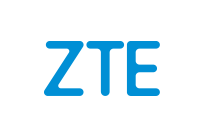Shenzhen, China – ZTE Corporation, an international provider of telecommunications, enterprise and consumer technology solutions for the mobile internet, and China Unicom have jointly completed Proof of Concept (PoC) of computing power network service scheduling.
This PoC, based on the SDN+SRv6 Policy framework, achieves flexible scheduling of value-added services across multiple resource pools, and completes integrated scheduling of computing power network. Thus, it provides a basis for further exploration into the application of computing power network and lays foundation for future commercial deployments of computing power network.
The computing power network is a new focus of the development of the digital economy and intelligent society. By introducing new frameworks and technologies, it implements integrated scheduling of computing, storage and network resources, and optimises resource utilisation and user experiences. Therefore, accelerating the development of the computing power networks has become one of the most important strategies of operators.
China Unicom proposed the concept of “computing power network brings new value” at Network 5.0 Summit in June 2019. Taking the transport network based on computing and cloud integration as the basic architecture of CUBE-Net 3.0, China Unicom proposed the “ultimate, elastic, intelligent and simplified” computing power network and aimed to build it as the computing power “engine” of the digital economy.
ZTE and China Unicom have been jointly promoting cooperation on computing power network, actively exploring cutting-edge technologies and innovations, and continuously investigating deployment scenarios of computing power network, to achieve a win-win of computing power network. At CCSA TC3, ZTE and China Unicom developed the industrial standards of the computing power identification system and led the researches in computing power network DevOps and microservice-based SRv6 computing power network.
In this PoC, the network value-added service scheduling, based on the computing power status perception, was set as the basic scenario. Virtual value-added services were deployed in multiple resource pools, and streaming media AI reasoning services were used based on the computing power network service orchestration system developed by China Unicom Research Institute.
In this PoC, the unified scheduling of computing power and network in many specific scenarios, including the initial state, service overlapping, intra-resource pool scheduling, inter-resource pool scheduling and service fallback have been verified via the collaboration of the service orchestration system, network controller, cloud management platform, and computing power gateway, so as to achieve prototype service flow stickiness and find the nearest service provisioning location of computing power network.
ZTE and China Unicom defined the instantiated scenarios, selected value-added service types, designed service flows, and selected overlapped service types to complete end-to-end service demonstration and acceptance.
Moving forward, ZTE will make further innovations in collaboration with China Unicom. By virtue of the CUBE-Net 3.0 architecture, ZTE will continue to promote the evolution of networks from basic connections to computing power network integration. Also, ZTE will assist China Unicom in achieving a new computing power network with advanced architecture and high security to deliver high-quality services.
Comment on this article below or via Twitter: @VanillaPlus OR @jcvplus






